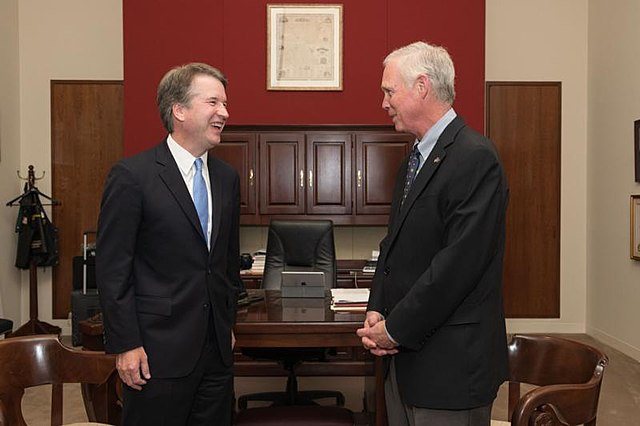The Calvinball principle

The Supreme Court is so debased that when it rules on a vote suppression case “it could have been worse” is generally the best you can hope for:
The Supreme Court handed the Republican Party a small victory on Thursday, making it marginally harder for new voters to register to vote in Arizona.
The decision, however, could have been much worse for voting rights: Republicans asked the justices to strip thousands of already-registered voters of their ability to vote for president. Three justices voted to do just that, but six members of the Court rejected the request.
Nevertheless, five members of the Court — every member of the Court’s Republican majority except for Justice Amy Coney Barrett — voted to make it marginally more difficult to register to vote in Arizona.
So this is a victory for the GOP, but probably not a particularly significant one. If the three most MAGA-pilled justices, Justices Clarence Thomas, Samuel Alito, and Neil Gorsuch, had prevailed, a meaningful chunk of Arizona’s voters could have been locked out of voting in the 2024 presidential election. But that didn’t happen.
The Court’s decision to hand Republicans even a small victory here is almost certainly wrong, under a 2006 Supreme Court decision warning judges not to change a state’s election procedures too close to an election. But the impact of Thursday’s GOP victory is likely to be fairly modest.
Oh right, the PURCELL PRINCIPLE, which in the past has (inter many alia) stopped decisions providing remedies for illegal vote suppression laws from going into effect nine months before the general election. What happened to that? Well, funny thing:
This decision to allow even a small part of the 2022 law to take effect is almost certainly wrong. The 2022 law was blocked by a 2023 federal court decision, and the Supreme Court ruled in Purcell v. Gonzalez (2006) that “federal courts ordinarily should not alter state election rules in the period close to an election.”
Thursday’s order alters Arizona’s state election rules just over two months before a presidential election. Before the Supreme Court ruled, the lower court’s order blocking all three provisions of the 2022 law was in effect. Now the rules have changed, if only slightly.
In the past, the Court’s Republican majority has wielded Purcell very aggressively when lower court judges handed down voting rights decisions making changes that benefited Democrats. Justice Brett Kavanaugh has even suggested that the Purcell window opens up more than nine months before a general election. So the GOP’s request to change Arizona’s voting rules less than three months before an election should have been rejected if the justices were being consistent.
Ad hoc procedural limitations are never meant to apply to changes Republicans like, silly. This is the kind of integritude that earned Kavanaugh the praise of America’s thirstiest elite liberal law professors. Hope the clerkships were worth it!


